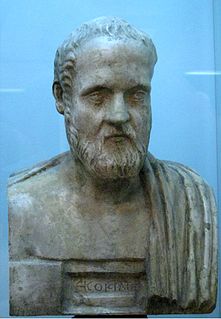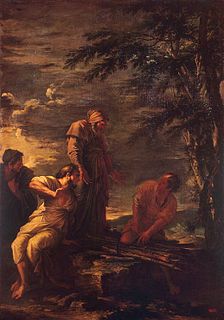A Quote by Epictetus
He is a wise man who does not grieve for the things which he has not, but rejoices for those which he has.
Related Quotes
There is no man ... however wise, who has not at some period of his youth said things, or lived a life, the memory of which is so unpleasant to him that he would gladly expunge it. And yet he ought not entirely to regret it, because he cannot be certain that he has indeed become a wise man -- so far as it is possible for any of us to be wise -- unless he has passed through all the fatuous or unwholesome incarnations by which that ultimate stage must be preceded.
Quick condemnation of all that is not ours, of views with which we disagree, of ideas that do not attract us, is the sign of a narrow mind, of an uncultivated intelligence. Bigotry is always ignorant, and the wise boy, who will become the wise man, tries to understand and to see the truth in ideas with which he does not agree.
As the astronomer rejoices in new knowledge which compels him to give up the dignity of our globe as the centre, the pride, and even the final cause of the universe, so do those who have escaped from the Christian mythology enjoy their release from the superstition which fails to make them happy, fails to make them good, fails to make them wise, and has become as great an obstacle in the way of progress as the prior mythologies which it took the place of two thousand years ago.
The difference between a man who is led by opinion or emotion and one who is led by reason. The former, whether he will or not, performs things of which he is entirely ignorant; the latter is subordinate to no one, and only does those things which he knows to be of primary importance in his life, and which on that account he desires the most; and therefore I call the former a slave, but the latter free.
Love is patient, love is kind, and is not jealous; love does not brag and is not arrogant, does not act unbecomingly; it does not seek its own [will], is not provoked, does not take into account a wrong suffered, does not rejoice in unrighteousness, but rejoices with the truth; bears all things, believes all things, hopes all things, endures all things.
Man doth seek a triple perfection: first a sensual, consisting in those things which very life itself requireth either as necessary supplements, or as beauties and ornaments thereof; then an intellectual, consisting in those things which none underneath man is either capable of or acquainted with; lastly a spiritual and divine, consisting in those things whereunto we tend by supernatural means here, but cannot here attain unto them.
Lord Bacon has compared those who move in higher spheres to those heavenly bodies in the firmament, which have much admiration, but little rest. And it is not necessary to invest a wise man with power to convince him that it is a garment bedizened with gold, which dazzles the beholder by its splendor, but oppresses the wearer by its weight.
A man goes to the village to visit the wise man and he says to the wise man, “I feel like there are two dogs inside me. One dog is this positive, loving, kind, and gentle dog and then I have this angry, mean-spirited, and negative dog and they fight all the time. I don't know which is going to win.” The wise man thinks for a moment and he says, “I know which is going to win. The one you feed the most, so feed the positive dog.
There is (gentle reader) nothing (the works of God only set apart) which so much beautifies and adorns the soul and mind of man as does knowledge of the good arts and sciences . Many arts there are which beautify the mind of man; but of all none do more garnish and beautify it than those arts which are called mathematical , unto the knowledge of which no man can attain, without perfect knowledge and instruction of the principles, grounds, and Elements of Geometry.







































